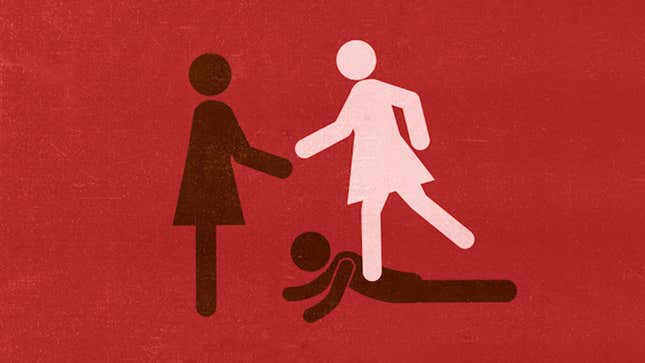I Don't Know What to Do With Good White People
Latest

I don’t know what to do with good white people.
I’ve been surrounded by good white people my whole life. Good white people living in my neighborhood, who returned our dog when he got loose; good white teachers in elementary school who pushed books into my hands; good white professors at Stanford, a Bay Area bastion of goodwhiteness, who recommended me M.F.A. programs where I met good white writers, liberal enough for a Portlandia sketch.
I should be grateful for this. Who, in generations of my family, has ever been surrounded by so many good white people? My mother was born to sharecroppers in Louisiana; she used to measure her feet with a piece of string because they could not try on shoes in the store. She tells me of a white policeman who humiliated her mother by forcing her to empty her purse on the store counter just so he could watch her few coins spiral out.
Two summers ago, my mother showed me the welfare reports written about her family. The welfare officer, a white woman, observed my family with a careful, anthropological eye. She described the children, including my mother, as “nice and clean.” She asked personal questions (did my grandmother have a boyfriend?) and wrote her findings in a detached tone. She wondered why my grandmother, an illiterate Black mother of nine living in the Jim Crow South, struggled to find a steady job. Maybe, she wrote in her loopy scrawl, my grandmother wasn’t searching hard enough.
This faded report is the type of official document a historian might consult if he were re-constructing the story of my family. The author, this white welfare officer, writes as if she is an objective observer, but she tells a well-worn story of Black women who refuse to work and instead depend on welfare. Occasionally, her clinical tone breaks down. Once, she notes that my mother is pretty. She probably considered herself a good white person.
In the wake of the Darren Wilson non-indictment, I’ve only deleted one racist Facebook friend. This friend, as barely a friend as a high school classmate can be, re-posted a rant calling rioters niggers. (She was not a good white person.) Most of my white friends have responded to recent events with empathy or outrage. Some have joined protests. Others have posted Criming While White stories, a hashtag that has been criticized for detracting from Black voices. Look at me, the hashtag screams, I know that I am privileged. I am a good white person. Join me and remind others that you are a good white person too.
Over the past two weeks, I’ve seen good white people congratulate themselves for deleting racist friends or debating family members or performing small acts of kindness to Black people. Sometimes I think I’d prefer racist trolling to this grade of self-aggrandizement. A racist troll is easy to dismiss. He does not think decency is enough. Sometimes I think good white people expect to be rewarded for their decency. We are not like those other white people. See how enlightened and aware we are? See how we are good?
Over the past two weeks, I have fluctuated between anger and grief. I feel surrounded by Black death. What a privilege, to concern yourself with seeming good while the rest of us want to seem worthy of life.
When my father was a young man, he was arrested at gunpoint. He was a Deputy District Attorney at the time, driving home one night from bible study when LAPD pulled him over. A traffic violation, he’d thought, until officers swarmed his car with shotguns aimed at his head. The cops refused to look in his wallet at his badge. They cuffed him and threw him on the curb.
-

-

-

-

-

-

-

-

-

-

-

-

-

-

-

-

-

-

-

-

-

-

-

-

-

-

-

-

-

-

-

-

-

-

-

-

-

-

-

-








































